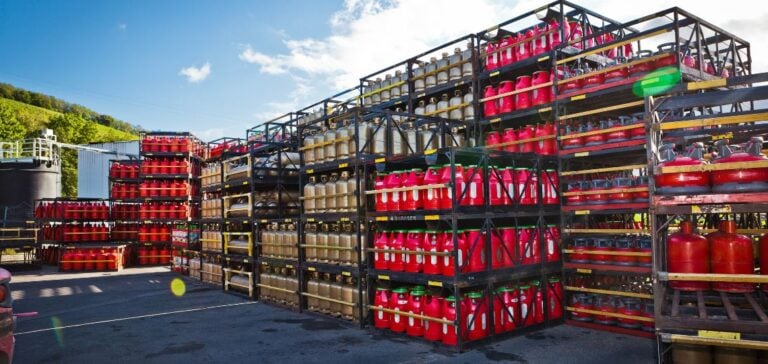The liquefied petroleum gas (LPG) market remains plagued by double uncertainty, after a relatively quiet heating season. On the one hand, price fluctuations in the natural gas and LNG markets. On the other, potential variations in demand in the Asian petrochemical sector. This follows two consecutive winters of weak heating demand, despite an abundant supply of LPG, mainly from US exports and refinery production. This abundance, combined with sluggish demand, exerted little pressure on prices. It has maintained them at a moderate level compared with previous years, according to data provided by Platts, a division of S&P Global Commodity Insights.
CIF NWE propane cargoes were valued at $551.75/mt on March 7, down $3.50/mt on the day but up $6.50/mt on the week. This price level, although up slightly over the week, remains below the peaks reached in February. It is also well below the September peak, marking the start of the heating season. This situation reflects the volatility of the market, influenced not only by seasonal demand but also by changes in the global geopolitical and economic context.
The focus is now on the future, with particular concern about the potential increase in demand for petrochemicals in Asia and turbulence in gas markets, which could reduce supply in Europe. The expansion of propane dehydrogenation facilities in Asia could, in the event of stronger demand, direct LPG flows from the United States eastwards, exacerbating pressure on European supply. “Persistent weakness in global petrochemical demand is a cause for concern,” commented S&P Global analysts. However, low LPG prices in the USA could exacerbate the competition, in the face of equally low naphtha and ethane values on both the US and world olefins markets.
Market Challenges and Medium-Term Outlook
The future of the petrochemical industry remains unclear, with few expectations of improved margins for the rest of the year. The outlook brightened slightly in Europe at the end of February, mainly for naphtha, but demand for LPG remains marginal. This complex dynamic raises questions about the future balance between supply and demand, with uncertainties linked to climatic conditions and changes in global energy markets.
Faced with these challenges, the LPG market is adjusting, with increased vigilance over the coming heating seasons. Market players are concerned about the possibility of rising demand in Asia and increased volatility in natural gas prices. The latter are preparing adaptive strategies, scrutinizing US supply and European storage and regasification capacities.






















